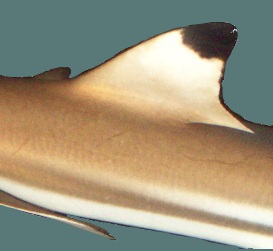Atlantic Fishery Managers Fail Sharks Yet Again
Press Release
Shark Advocates International
17. November 2014
———————–
ICCAT leaves high seas mako fishing unregulated, porbeagles under-protected,
and finning ban weak
 Genoa, Italy. November 17, 2014. Fishing nations at the annual meeting of the International Commission for the Conservation of Atlantic Tunas (ICCAT) have failed to reach consensus on several shark conservation proposals, including a joint US-EU effort to establish catch limits for heavily fished shortfin makos, and an EU bid to protect threatened porbeagles. A multi-national effort to strengthen the ICCAT ban on shark finning (slicing off a shark’s fins and discarding the body at sea) was also defeated, despite a growing number of co-sponsoring countries. ICCAT’s inaction comes just a week after Parties to the Convention on Migratory Species (CMS) – 27 of which are also ICCAT Parties – demonstrated overwhelming support for shark conservation.
Genoa, Italy. November 17, 2014. Fishing nations at the annual meeting of the International Commission for the Conservation of Atlantic Tunas (ICCAT) have failed to reach consensus on several shark conservation proposals, including a joint US-EU effort to establish catch limits for heavily fished shortfin makos, and an EU bid to protect threatened porbeagles. A multi-national effort to strengthen the ICCAT ban on shark finning (slicing off a shark’s fins and discarding the body at sea) was also defeated, despite a growing number of co-sponsoring countries. ICCAT’s inaction comes just a week after Parties to the Convention on Migratory Species (CMS) – 27 of which are also ICCAT Parties – demonstrated overwhelming support for shark conservation.
“We are deeply disappointed that – year after year – a small number of countries are ensuring the defeat of sound conservation proposals for exceptionally vulnerable sharks,” said Sonja Fordham, President of Shark Advocates International, a project of the Ocean Foundation. “This lack of progress is particularly troubling in the wake of an historic CMS meeting that was dominated by a resounding call for action to safeguard sharks.”
Japan and China blocked the US, Belize, and Brazil in their sixth attempt to strengthen the ICCAT finning ban by replacing the problematic fin-to-carcass weight ratio limit with a more enforceable prohibition on removing fins at sea. This year’s bid for a “fins-attached” policy, however, gained additional co-sponsors this year – including South Africa and the Ivory Coast – for a total of 14 Parties, while losing support from Mexico. The EU joined the fins-attached effort in 2013.
“We are dismayed by the strong opposition to the fins-attached measure from Japan and China that continues to thwart the collaborative work of a growing number of Parties,” said Rosa Indenbaum, International Conservation Legal Fellow for Defenders of Wildlife.
The US and the EU collaborated to jointly propose initial catch limits for heavily fished, highly vulnerable shortfin mako sharks, and were supported by Guinea, Senegal, and Mauritania. Proposed limits were opposed by Japan, Brazil, Uruguay, and Norway. ICCAT scientists have recommended measures to ensure shortfin mako fishing does not increase, yet makos are not subject to quotas under ICCAT or through the main Atlantic mako fishing nations of Spain and Portugal.
“We thank the EU for working to secure shark conservation measures at ICCAT, and yet remind officials that there is still much work to do for sharks in Europe,” said Ali Hood, Director of Conservation for Shark Trust. “We encourage the European Commission to boost its case for ICCAT action for sharks by establishing EU limits on oceanic sharks, especially makos, and by demonstrating for Asian delegations that the fins-attached method is feasible for large-scale, high-seas freezer fleets, using examples from Spain.”
Canada once again ensured defeat for an EU proposal to protect porbeagle sharks. Over the five years that the two Parties have been arguing about Canada’s landings, porbeagle take by Japanese vessels operating in the Atlantic has been rising, putting Japan in the lead for landings of this species.
Source: Shark Advocates International
